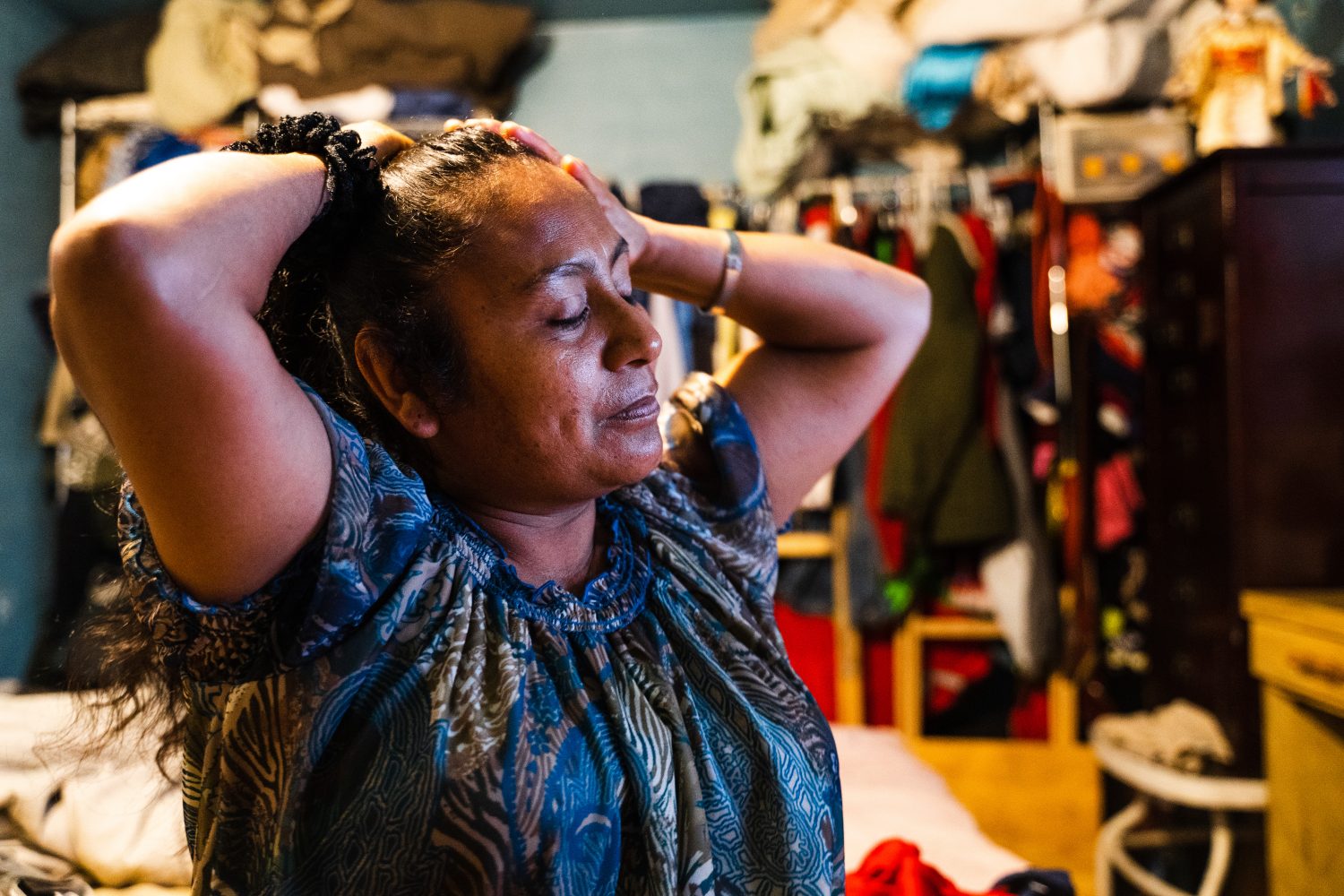By Justin Bright | November 18, 2019
Anything was better than what she had back home.
It’s been 20 years since Antonia Rios left Oaxaca for the United States. She believed her hometown in southern Mexico offered no future to raise a family as she wanted.
Antonia moved wherever she could find work and followed her brother to Immokalee, Florida. There, she worked six years as a farmworker in a town where 46% of inhabitants were born outside the U.S, according to the U.S. Census Bureau.
“You arrive here with your self-esteem below the ground,” Antonia said.
In Immokalee, she found home. Antonia and her husband Piwi Rios carved out a living for their beloved family of four, despite the long hours and low wages picking tomatoes. This year, Antonia became a citizen of the United States.

“Some of us come for opportunity,” Antonia said. “I am grateful to be living here in the U.S. I know that we can work hard and live simply.”
Now, Antonia rarely works in the fields but still stands in solidarity with the workers. She is an active member of the Coalition of Immokalee Workers, a union that fights for better rights and work standards in the farms of South Florida.

The Coalition created the Fair Food Program in 2011 and its terms require participating buyers to ensure safety protocols, worker education and to pay a one-cent premium for each pound of tomatoes picked.
The program has distributed over $30 million to workers through the penny-per-pound premium since 2011. The Fair Food Program also educates workers to report sexual harassment, a problem that has plagued the industry for years.
Rios said farmworkers wouldn’t speak out against workplace oppression for fear of losing their job or immigration status.
“It makes my heart happy to see us treated fairly,” Antonia said, who recalls earning $50 at the end of her 13-hour workdays.
Despite the uphill battles she faces as an immigrant in one of the state’s poorest cities, Antonia radiates positivity and charity. She regularly volunteers at her daughters’ school and gives baskets of fresh fruits and vegetables to friends from her overflowing garden.
“I don’t have time to think about negative things,” she said. “Every morning I watch the sun come up and listen to the birds and I think, ‘How can I not be happy?'”
Her world revolves around her daughters Daniela and Vanessa. She credits Daniela for giving her the strength to travel to El Paso, Texas, last year to receive her citizenship.
“I went alone to the border for the first time in 20 years,” Antonia said. “I went with the courage from my daughter. She told me to have no fear.”
Antonia instilled the principles of hard work and compassion in her daughters. The three have traveled to six states with the Coalition to protest.

Daniela, 17, is a senior at Immokalee High School will be the first member of her family to graduate high school and attend a university. As of November, she has been accepted to Florida SouthWestern State College and wants to pursue a career in criminal justice. Daniela is motivated by the racial and economic injustices she sees in the world today.

Her younger sister, Vanessa, may not yet have college on her mind but her strong performance in school allowed her to skip 5th grade this year.
“Our parents want us to work as hard as we can,” Daniela said. “I personally want to make them proud.”
Antonia survived the treacherous 1,500 mile journey to the U.S., Mexican border by foot, but she knows that others aren’t as lucky. It pains her to see families separated at the border.
“The parents know why they are coming to the U.S., but the kids don’t,” she said. “Either all can come in, or none come at all. No need to separate families.”

Despite stricter immigration policies, over 977,000 migrants crossed the border without authorization in the 2019 fiscal year, the most since 2006 according to the U.S. Customs and Border Protection.
Antonia said the migrants are not to blame, but rather the corruption in their home countries.
“They don’t work for the people,” she said of the migrants’ home governments. “They work for themselves. People are dying of hunger while Latin America is rich in production.”
Demonstrations across South and Central America, most recently in Chile, are critical of the status quo and call for more transparency and an end to corruption and violence.
In a few years, Antonia Rios will have spent more of her life in the United States than in Mexico. The roots she established in Immokalee grow deeper with each passing year. She says that her biggest blessing is the well-being of her family.

“We’re judged by what one migrant does, but we’re not everyone,” Rios said of her friends and family in Immokalee. “We are neighbors, mothers, daughters, employees and we contribute to the community. We are here to stay.”
 Special Report from WUFT News
Special Report from WUFT News